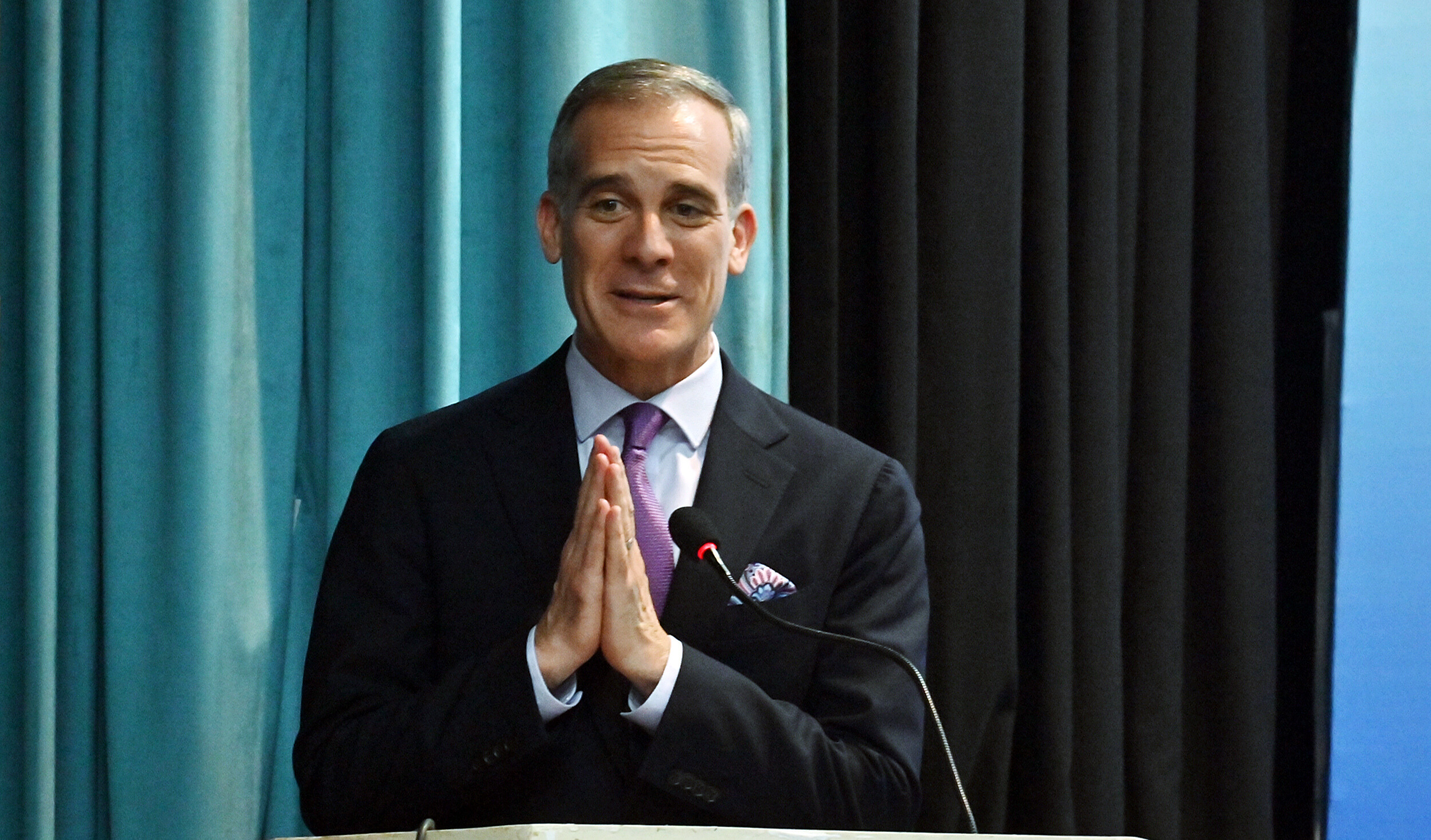The United States views India as a “friend and partner,” rather than a counterbalance to China, emphasized US Ambassador to India Eric Garcetti in a recent interview. Garcetti underscored the strong partnership between the two nations, grounded in shared values of sovereignty, rule of law, and respect for borders.
He said that the US has historically supported India, particularly during border conflicts, and has always believed that aggression should not be rewarded anywhere in the world.
“We see India as a friend and a partner, not a counterbalance. We share principles about borders, sovereignty, and the rule of law. We’ve stood with India on the border during conflicts and recognized the McMahon Line since 1952,” Garcetti said. He reiterated that the United States desires peaceful relations with China, but stressed the importance of ensuring that countries can maintain their sovereignty without external threats.
When asked about the complex US-China relations and how India fits into the broader regional dynamics, especially amid strained India-China relations, Garcetti highlighted Washington’s support for India’s diplomatic efforts.
“We support India’s diplomatic interactions right now. As External Affairs Minister S. Jaishankar mentioned, about 75% of the border disputes with China have been resolved, but sovereignty must always be respected,” Garcetti remarked.
The US ambassador also addressed concerns about countries falling into “debt traps”—a veiled reference to China’s Belt and Road Initiative (BRI). He emphasized that the US advocates for choices and transparency in international partnerships, ensuring that nations do not become financially dependent or lose control of their domestic policies.
“We want to ensure people have choices, that they don’t fall into debt traps or become subject to undue foreign influence. Democracy, free markets, and the rule of law are crucial.”
Garcetti touched upon the deepening personal rapport between Prime Minister Narendra Modi and US President Joe Biden, describing it as a pivotal element in strengthening ties between the two nations. “Prime Minister Modi is the most pro-American leader in India’s history, and President Biden is the most pro-Indian president we’ve had. Their close friendship has been instrumental in bringing our countries closer,” he said.
Garcetti pointed to the symbolic significance of Biden hosting PM Modi at his personal residence in Delaware during the Quad Summit, underscoring the strength of their bond.
On the Quad’s role in the Indo-Pacific, Garcetti described the forum—comprising the US, India, Japan, and Australia—as a “powerful place” to advance a shared vision of a free and open Indo-Pacific. He characterized the Quad as a contrast to countries that disregard international rules and the rule of law, emphasizing that the group is focused on proactive solutions to global challenges.
“The Quad is about setting a vision and building solutions. It’s not just a military alliance; it’s about preserving peace and ensuring prosperity for all,” Garcetti said.
The latest Quad Leaders’ Summit, hosted by President Biden in his hometown of Wilmington, Delaware, saw leaders from the four nations reaffirm their commitment to addressing shared challenges in the Indo-Pacific. The summit also included bilateral talks between Biden and PM Modi, during which Biden reiterated support for India’s bid for a permanent seat on the United Nations Security Council and acknowledged India’s growing global influence.
Garcetti was clear in stating that the Quad is not intended to threaten any nation but to support regional stability and cooperation. He concluded by emphasizing the group’s role in disaster relief, supply chain security, and broader cooperation, adding that the Quad is “about finding solutions to common challenges in a multilateral way, inspiring the world.”
The sixth Quad Leaders’ Summit served as a “farewell” for both U.S. President Joe Biden and Japanese Prime Minister Fumio Kishida, as both leaders are set to leave office in the coming months.
(Inputs from ANI)




















